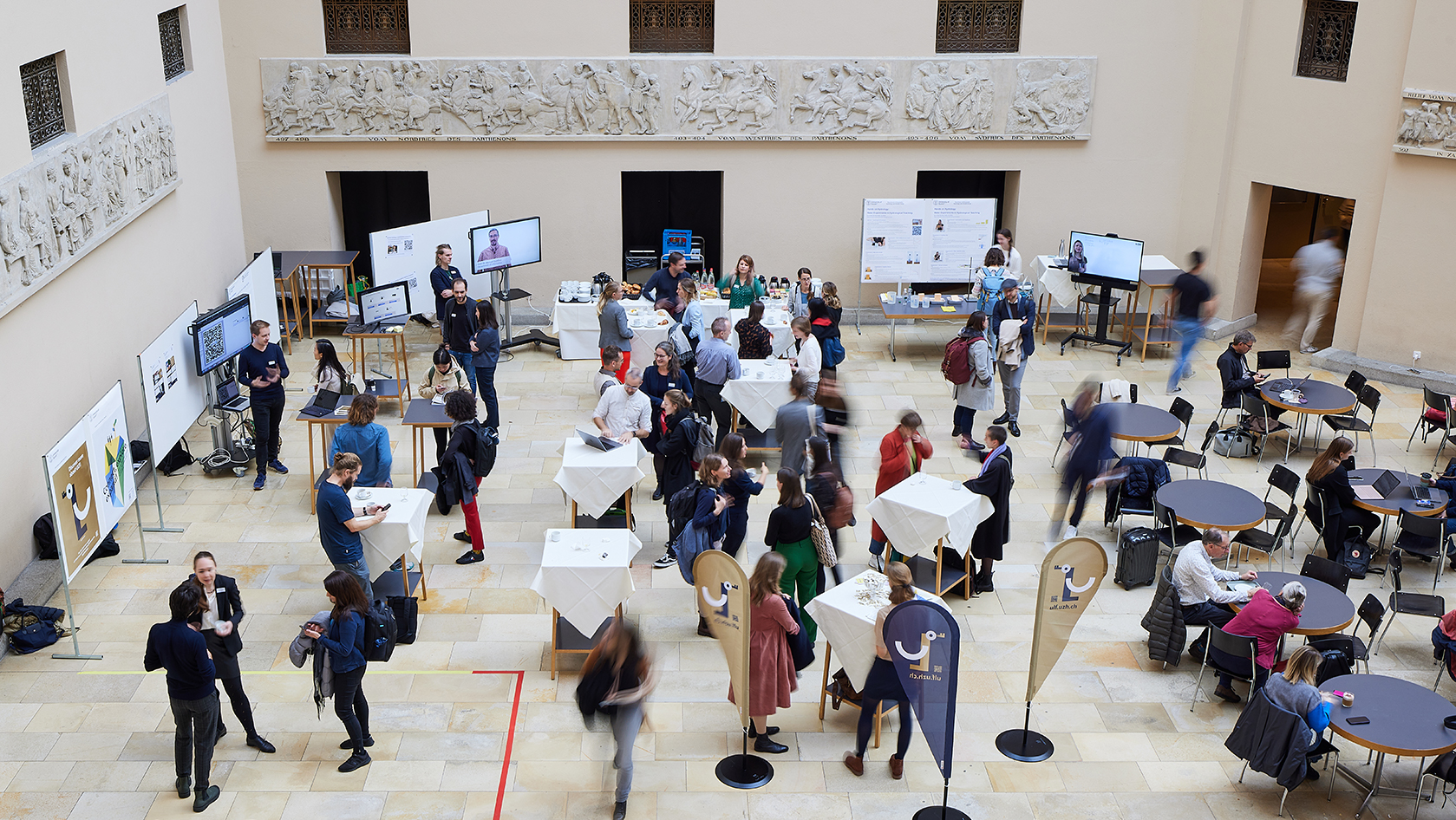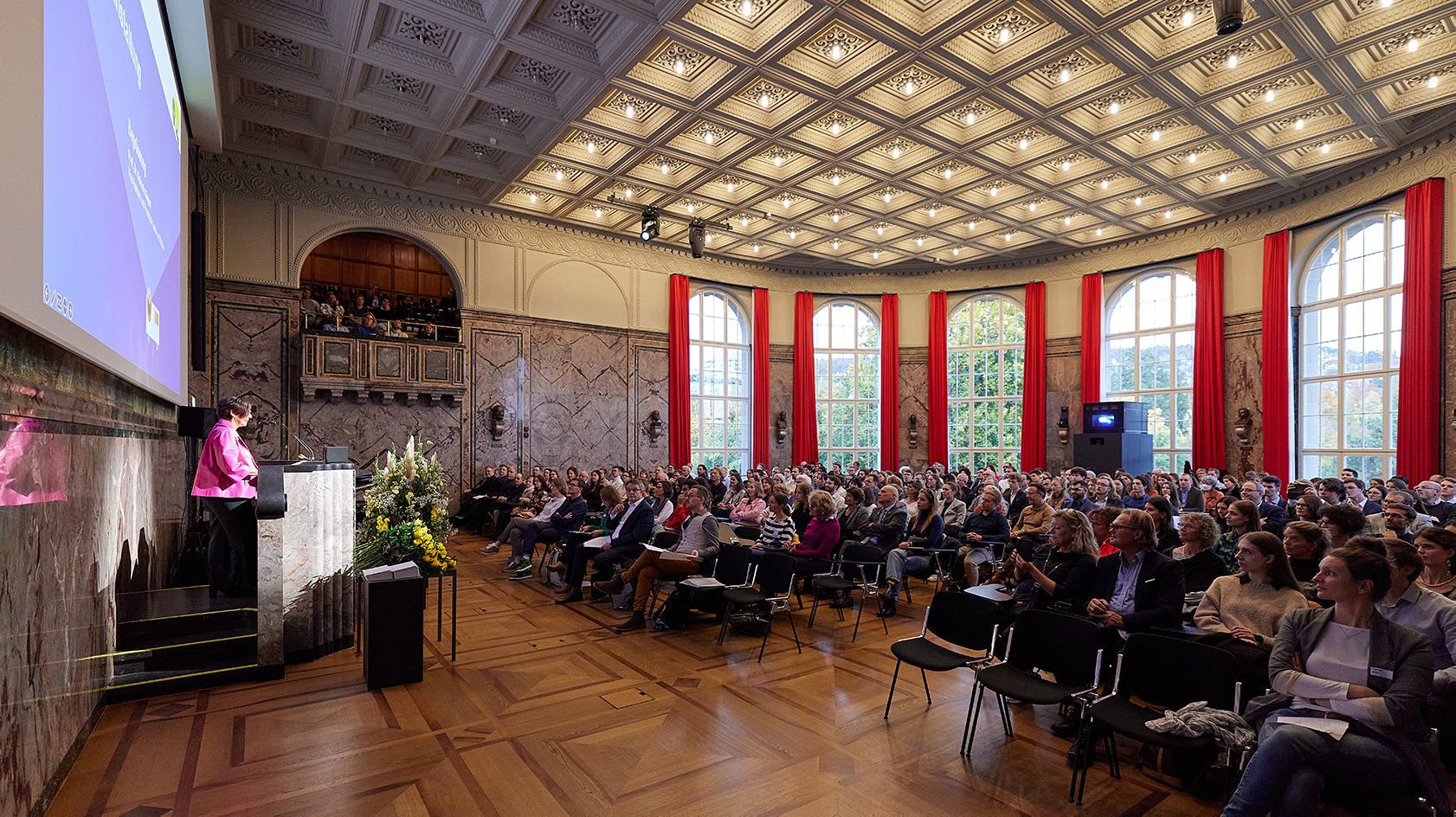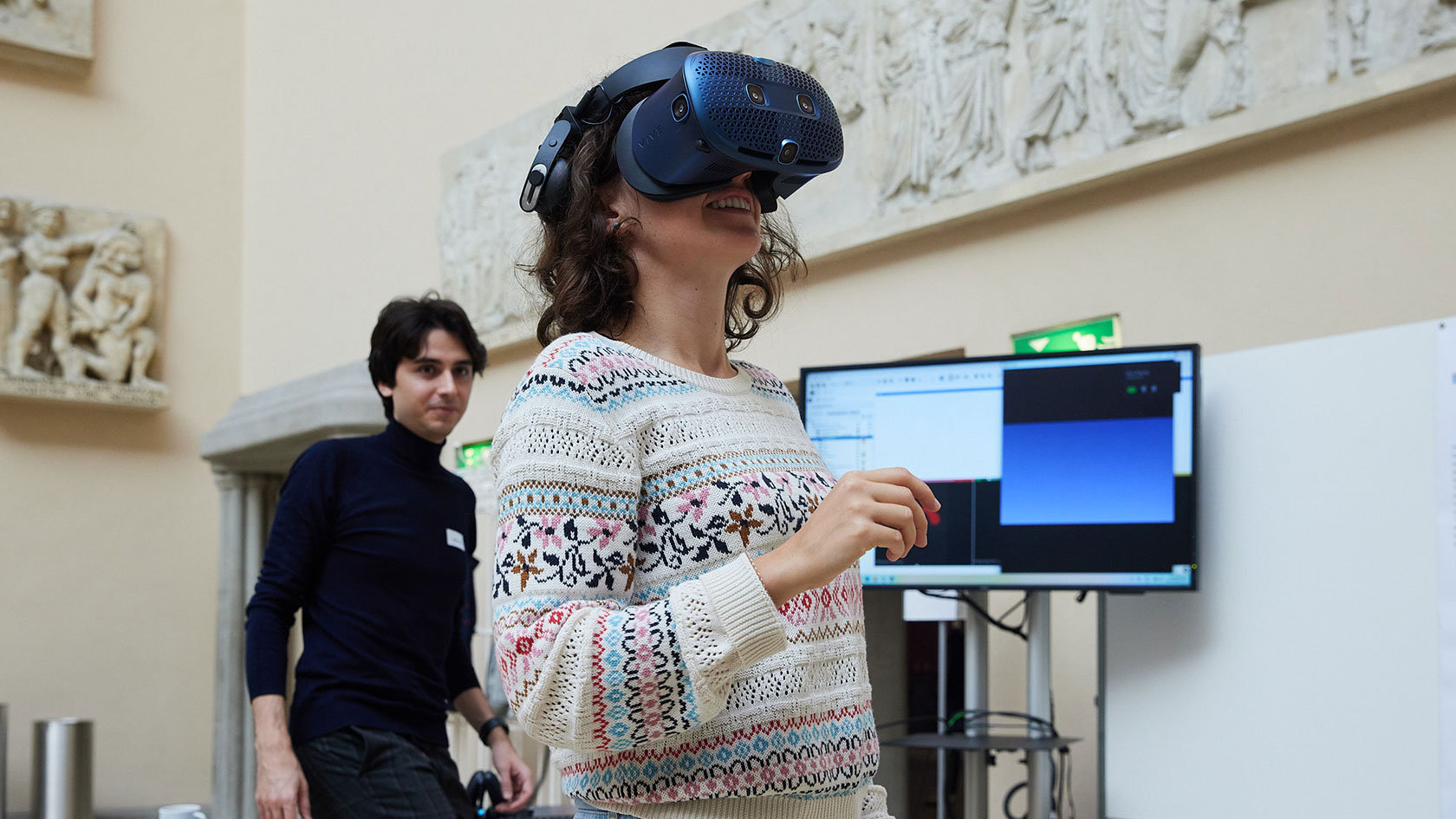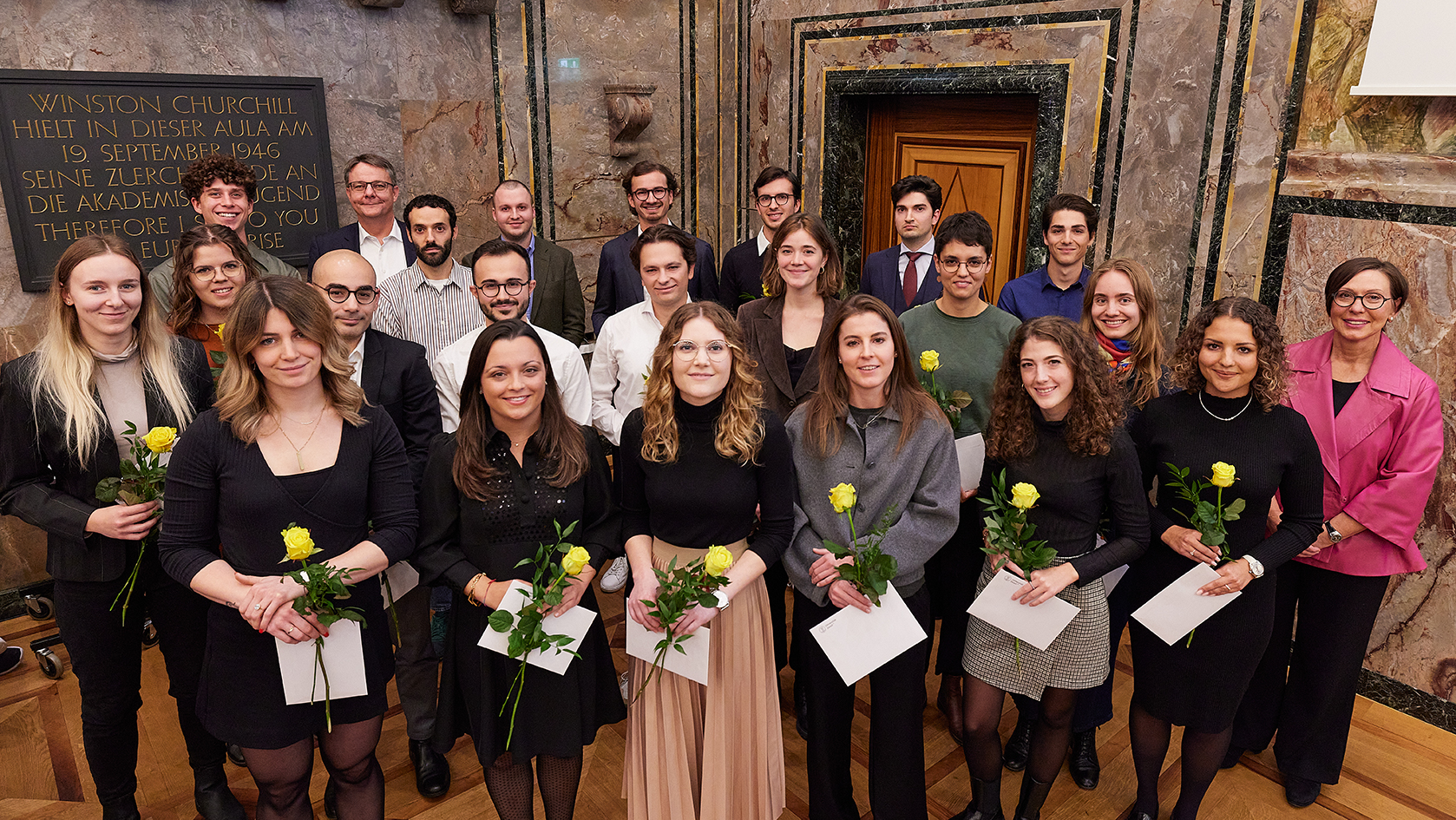Navigation auf uzh.ch
Navigation auf uzh.ch

Artificial intelligence, interdisciplinarity and innovation in teaching and learning were the core themes of this year’s Tag der Lehre. Gabriele Siegert, Vice President Education and Student Affairs, opened her speech in the main lecture hall with the topic of AI: “It has now developed to such a point that it can pass exams and write decent texts.” As a house of knowledge, the University of Zurich must teach students how to handle these new technologies and should facilitate exchange and discussion about artificial intelligence, she continued. “We want to create knowledge for all and to shape teaching in such a way that there are no barriers preventing people from benefiting from it,” said Siegert. “Topics such as ensuring lectures are accessible and digital teaching materials are available are just as important as recognizing the diversity of the people who teach, research and study at our university.”

The apt motto of the day, which was all about community, mutually inspiring exchanges and lively discussions, was “inspire(d) minds”. Accordingly, opportunities to talk and exchange ideas about current hot topics were plentiful, whether at the exhibition of innovative teaching projects in the Lichthof, one of the five workshops offered for teaching staff, study program coordinators and students, at the networking lunch or at the closing reception in the Lichthof.
We report below on just two of the many workshops on offer in the densely packed and varied program of Tag der Lehre.
In the workshop titled “AI: Good Practices at UZH” led by Carina Klein of the Educational Development Office, UZH teaching staff from various disciplines provided insights into possible scenarios in which AI could be used in teaching. “During the last year it has come to our attention that teaching staff are increasingly interested in finding out how they can usefully integrate generative AI tools into their courses and hearing from other instructors about their experiences with using them,” says Klein, explaining why she chose to run such a workshop.
Using examples from their own courses, five instructors gave brief presentations of their ideas, such as integrating ChatGPT into teaching in an educationally useful way, for example by including answers from the tool in classroom discussions and critically reflecting on the AI responses. In this way, students get to discuss the subject and apply what they have learned, and at the same time become familiar with how the tool works and with its strengths and weaknesses. The speakers all agreed on one point: an important reason for addressing generative AI in class is to teach students how to use these tools competently and with awareness of the drawbacks.
Other discussion issues raised in response to the short presentations included course planning using AI and the use of artificial intelligence in the academic writing process. To conclude, Carina Klein introduced the workshop participants to the Teaching Tools platform . The platform contains tips, recommendations, good-practice tools, educational methods and further support on the topic of AI use in teaching. All the papers from the workshop have also been published on the platform (https://teachingtools.uzh.ch/en/good-practice/ki-good-practices-an-der-uzh). “This means all teaching staff who were not able to attend Tag der Lehre can read up on the topics and get inspiration for their own courses,” said Klein.
Another workshop offered by the Educational Development Office focused on ideas and approaches for teaching heterogeneous groups of students, especially as found in interdisciplinary and transdisciplinary courses. Workshop leaders Hannah Lora Freeman from the Innovation and Digital Education team and Eleni Spiroudis of the School for Transdisciplinary Studies began by asking participants to share their own experiences. In the discussion round, the importance of clearly emphasizing the goal of interdisciplinary teaching at the beginning of the course became clear: by bringing together students and teaching staff from different disciplines, it becomes possible to look at academic questions or real-world challenges from different perspectives and with the inclusion of knowledge from society, and thus to find holistic solutions. The workshop participants were also in agreement that students in interdisciplinary courses should be given enough time to find out which subject areas their fellow students came from. “Learning from each other is explicitly encouraged,” says Hannah Freeman.
Another issue that came up in workshop was how challenging it is for instructors of interdisciplinary courses to design an appropriate assessment. Students are used to different forms of assessment depending on which subject areas they come from. “For experienced students from the humanities, the idea of writing an essay at the end of a seminar is not a big surprise, while for students from the natural sciences, essay writing is not a form of assessment that they know and have practice in,” explains Eleni Spiroudis. It is therefore important that instructors communicate their expectations for the assessment early and clearly, and if necessary offer practice sessions and provide best-practice examples.
Even though dealing with heterogenous groups in interdisciplinary courses brings particular challenges, the workshop participants unanimously agreed that they also offered great opportunities for all involved: inter- and transdisciplinary teaching stimulates critical thinking, extends instructors own skillsets, opens up new possibilities for interdisciplinary collaboration and widens one’s own professional horizons.

At the celebratory evening event, a spotlight was shone on the winners of the semester awards and the Faculty of Law’s Orelli awards as well as on the graduates of the Teaching Skills Program and the CAS in University Teaching and Learning.
To round off the event, Gabriele Siegert invited all attendees to join the closing drinks reception and to look at the exhibition on display in the Lichthof. The exhibition showcases innovative teaching projects that have received funding from the UZH Teaching Fund, and displays posters about the Teaching Tools platform. Visitors to the exhibition were able to try out AI chatbots developed by students and use virtual reality to discover the complex anatomy of the ear.
